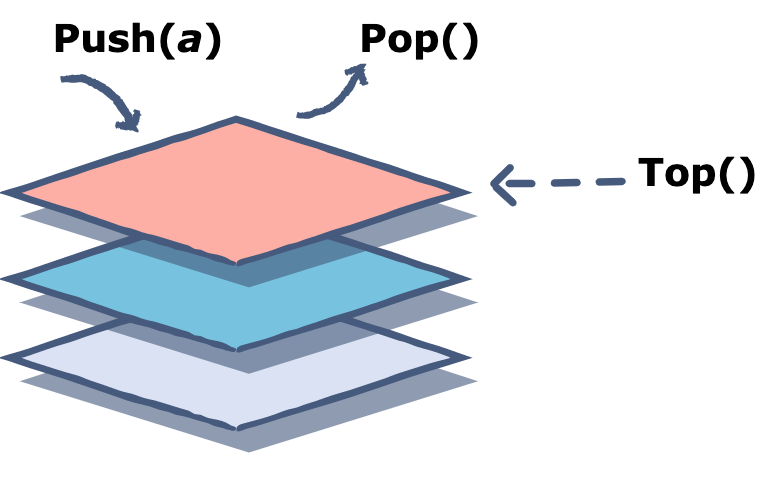How to implement a stack in C using a linked list
A stack is a linear data structure that follows the Last in, First out principle (i.e. the last added elements are removed first).
This abstract datatype can be implemented in C in multiple ways. One such way is by using a linked list.
Pro of using a linked list:
- The stack grows according to the user’s requirements.
Con of using a linked list:
- Extra memory required to store the pointers.
Implementation
The following code will implement three functions supported by a stack:
- Push(a): It adds element a on top of the stack. It takes ) time as each stack node is inserted in the front of the linked list.
- Pop(): It removes the element on top of the stack. It also takes time as the
rootcontains the pointer to the most recently added element. - Top(): It returns the element on top of the stack. It takes time as finding the value stored in the stack node pointed is a constant time operation given the
rootnode.
#include<stdio.h>#include<stdlib.h>// Struct to hold the data and the pointer to the next element.struct element{char data;struct element* next;};// Append the new element to the start of the stackvoid push(char data, struct element** stack){struct element* Element = (struct element*)malloc(sizeof(struct element));Element -> data = data;Element -> next = *stack;(*stack) = Element;}// Remove element from the top of the stackvoid pop(struct element** stack){if(*stack != NULL){printf("Element popped: %c\n",(*stack) -> data);struct element* tempPtr = *stack;*stack = (*stack) -> next;free(tempPtr);}else{printf("The stack is empty.\n");}}// Display the element at the top of the stackvoid top(struct element* stack){if(stack != NULL){printf("Element on top: %c\n", stack -> data);}else{printf("The stack is empty.\n");}}int main() {struct element* root = (struct element*)malloc(sizeof(struct element));root -> data = 'a';root -> next = NULL;top(root);push('b',&root);top(root);push('c',&root);top(root);pop(&root);top(root);pop(&root);top(root);pop(&root);top(root);pop(&root);return 0;}
Free Resources
Copyright ©2025 Educative, Inc. All rights reserved
TRENDING TOPICS
